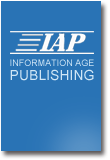
Teacher Educator Learning Across the Professional Life Span
Edited by:
Jennifer L. Snow, Boise State University
Jennifer Jacobs, University of South Florida
A volume in the series: Advances in Teacher Education. Editor(s): Diane Yendol-Hoppey, University of North Florida. David T. Hoppey, University of North Florida. Jennifer L. Snow, Boise State University. Jennifer Jacobs, University of South Florida.
Call for Papers
BOOK DESCRIPTION:This volume of the Advances in Teacher Education Series will explore professional learning across the professional lifespan of a teacher educator (Snow, Wenner, Dismuke & Hicks, 2019). Perspectives on teacher educators doing the work of initial teacher preparation (Cochran-Smith, 2003; Cochran-Smith, 2012; Darling-Hammond, 2006; Goodwin & Darity, 2019), teacher induction (AIR, 2015; Ingersoll & Strong, 2011; Ingersoll & Strong, 2012), teacher educator leadership (Butler & Yendol-Hoppey, 2020; 2023; Ramirez & Allison, 2016), and the work of veteran teacher educators engaging in sustained teacher educator inquiry will be explored through sections of the book. This book will frame the need for investigation into the professional learning of teacher educators across a professional lifespan continuum by using the foundation of professional learning and identity development scholarship (Davey, 2013; Erickson, Young, & Pinnegar, 2011; Goodwin & Kosnick, 2013; Jacobs, Yendol-Hoppey, & Dana, 2015; Ping, Schellings, & Beijaard, 2018) and how they inform attitudes toward professional learning throughout a career via the question: How does professional learning/development across time change and build?
Organized around different contexts of work for teacher educators, including initial preparation, early years of teaching, teacher educator leadership and sustained teacher educator inquiry, this volume focuses on equity centered teacher education (Jacobs, 2023) and the need for continued development across a professional career. This scholarship in and for teacher educators leverages the power of communities of practice (Cochran-Smith & Lytle, 1999; Jacobs & Yendol-Hoppey, 2010; Jacobs, Yendol-Hoppey, & Dana, 2015; Lieberman & Miller, 2008; Stillman, Ahmed, & Castanede-Flores, 2019). Research in and for teacher education has focused primarily on initial preparation with a newer focus on the professional learning of teacher educators, particularly in the context of initial preparation (Jacobs, 2023). There remains space to explore the professional learning of teacher educators across a professional life span and within varied contexts.
TOPICS OF INTEREST:
The editors invite chapter proposals for this volume that critically examine the professional learning of teacher educators within different contexts and over time. In particular:
• Editors welcome chapters focused on the professional learning of teacher educators during initial teacher preparation that respond to questions about key knowledge and skills teacher educators practice during these spaces. The following questions may be pursued: How do teacher educators learn, understand, and enact pedagogy for learning to teach focused on disciplinary content knowledge, foundational knowledge and skills, and equity-centered practice? How do teacher educators enact practice within sociocultural contexts, including teacher education policy and a focus on outcomes? How might work in school-university partnerships inform teacher educator professional learning?
• Editors also welcome chapters focused on the work of teacher educators in the context of early years of teaching, also known as induction. Consideration of the following questions is welcomed: How do teacher educators support teachers in their early years of teaching, particularly with regards to equity centered teacher education? What new knowledge do teacher educators gain through the support of teachers in their early years? How does this inform teacher educator professional learning? How might work in school-university partnerships inform teacher educator professional learning?
• Likewise, editors invite chapters on professional learning in contexts of teacher educator leadership, and where teacher educators are engaged in the function of leadership. The following questions may be pursued in this section: How do teacher educators identify as leaders in their varied positions and contexts for their work? What professional learning leads to teacher educators seeing themselves as leaders? How might work in school-university partnerships inform teacher educator professional learning with regards to teacher educator leadership?
• Additionally, editors invite chapters focused on the identity development and professional learning of teacher educators within contexts of sustained teacher educator inquiry and how teacher educators perceive their professional growth across their professional life span. The following questions may be pursued in this section: What is the focus of teacher educator professional learning in the practice of sustained teacher educator inquiry? What structures support this professional learning (ie., communities of practice and/or school-university partnerships)? What do these teacher educator perspectives offer for the construction of a professional learning continuum for teacher educators and identity construction over time?
Contributions may include diverse methodologies, including self-study, that focus on the agency of teacher educators in their professional learning and equity-centered teacher education and practice.
Send all inquiries to Jennifer Snow at: jennifersnow@boisestate.edu
CONTENTS
BUY ONLINE
- This title is in development and is not yet available to order online. Please call the IAP office for more information: 704.752.9125

CATEGORIES
CLASSIFICATION
RELATED TITLES
-
 (Re)Designing Programs:
A Vision for Equity-Centered, Clinically Based Teacher Preparation
(Re)Designing Programs:
A Vision for Equity-Centered, Clinically Based Teacher Preparation
-
 Collaboration, Narrative, and Inquiry That Honor the Complexity of Teacher Education
Collaboration, Narrative, and Inquiry That Honor the Complexity of Teacher Education
-
 Cultivating Democratic Literacy Through the Arts
Guiding Preservice Teachers Towards Innovative Learning Spaces in ELA Classrooms
Cultivating Democratic Literacy Through the Arts
Guiding Preservice Teachers Towards Innovative Learning Spaces in ELA Classrooms
-
 Exemplary Clinical Models of Teacher Education
Exemplary Clinical Models of Teacher Education
-
 Pathways Into Teacher Education
Profiles of Emerging Teacher Educator Development
Pathways Into Teacher Education
Profiles of Emerging Teacher Educator Development
-
 Preparing the Next Generation of Teacher Educators for Clinical Practice
Preparing the Next Generation of Teacher Educators for Clinical Practice
-
 Professional Learning Journeys of Teacher Educators
Professional Learning Journeys of Teacher Educators
